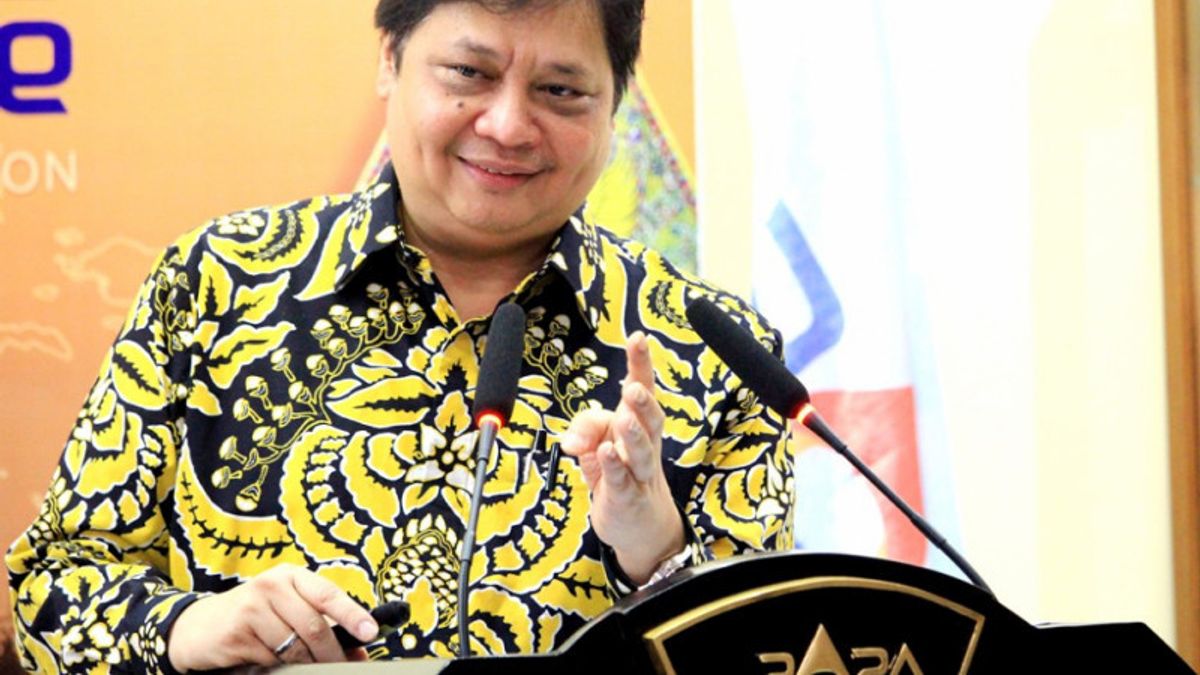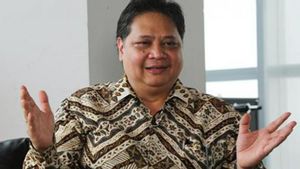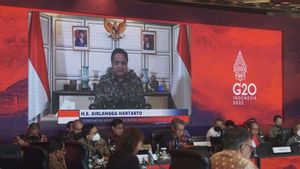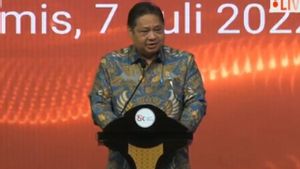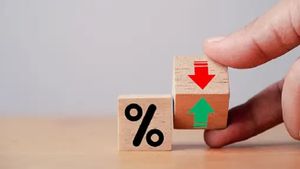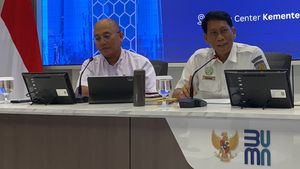JAKARTA - The Coordinating Minister for Economic Affairs, Airlangga Hartarto, emphasized that the supply of global vegetable oil must be holistic and non-discriminatory at the UN-ECOSOC High-Level Political Forum.
"In the midst of this crisis, ensuring the availability, accessibility, and affordability of agricultural commodities in the global market, including vegetable oil, is one of our main focuses," said Airlangga, quoted by ANTARA, Monday, July 11.
Airlangga conveyed, in an effort to meet the SDGs 2030 target, several major challenges emerged such as high inflation, spikes in interest rates, spikes in food and energy prices, and disruption of supply and trade in agricultural commodities.
Taking into account the global population growth and the widespread use of vegetable oils in various industries, it is estimated that the global market size of edible oils will increase from 199.1 million metric tons in 2020 to 258.4 million metric tons in 2026.
Meanwhile, even before the onset of the global crisis, vegetable oils have long been a source of livelihood for small-scale farmers as well as an engine of development in many developing countries.
It is therefore important to ensure a sustainable supply of sufficient vegetable oil to global markets to prevent further price volatility and shocks to the global economy.
"In this regard, we continue to believe that joint efforts to ensure sustainability in the global vegetable oil market must be carried out in a holistic and non-discriminatory manner," said Airlangga.
In addition, said Airlangga, a conducive environment is also needed and the provision of resources and skills to support small farmers in realizing sustainable production of commodities used to produce vegetable oil.
As one of the world's leading producers and exporters of vegetable oils, including palm oil and coconut oil, Indonesia continues to emphasize the importance of ensuring sustainability across the vegetable oil sector. This is done, among others, through the use of smart farming on coconut plantations and replanting support for oil palm farmers.
Airlangga said, Indonesia is committed to accelerating the clean energy transition through a biodiesel policy to achieve net-zero emissions.
It is estimated that the use of B30 has the potential to reduce greenhouse gas emissions by 24.6 million tons of CO2.
It will also strengthen Indonesia's goal of achieving its energy security and energy mix targets of 23 percent by 2025.
SEE ALSO:
Indonesia will also continue to promote the importance of sustainable agriculture and food systems in various forums, including through the G20 Presidency and in cooperation with the UK through the co-chairmanship of the Forest, Agriculture, and Commodities Trade (FACT) dialogue.
Indonesia also aims to promote sustainable commodities while meeting the SDGs and supporting economic development.
In addition, Indonesia is also committed to encouraging and synergizing cooperation to ensure sustainable vegetable oils in various relevant international organizations such as the Council of Palm Oil Producing Countries (CPOPC) and the International Coconut Community (ICC).
"Let us redouble our efforts to achieve the SDGs, and set our path towards a more resilient global community, including through the promotion and development of sustainable vegetable oils," said Airlangga.
The English, Chinese, Japanese, Arabic, and French versions are automatically generated by the AI. So there may still be inaccuracies in translating, please always see Indonesian as our main language. (system supported by DigitalSiber.id)
